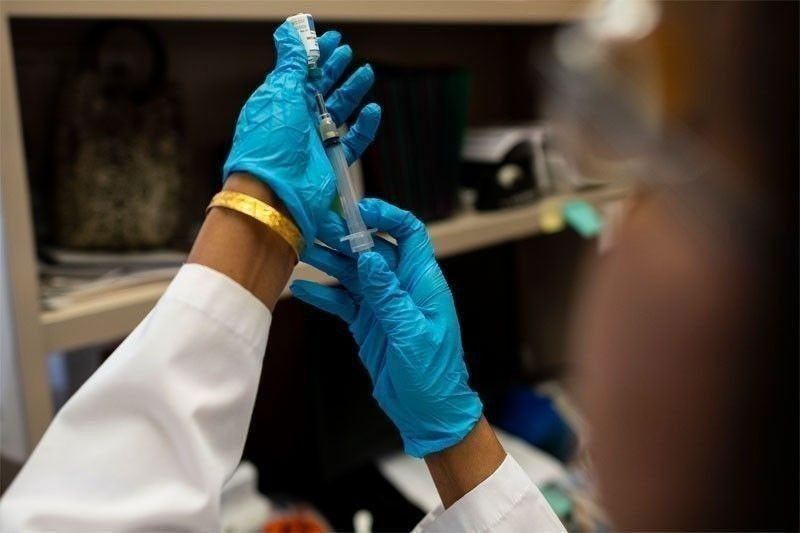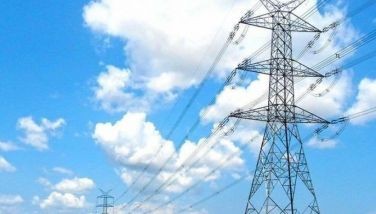Palace insists 'no favorites' on vaccine purchase from drugmakers

MANILA, Philippines — Malacañang on Tuesday sought to defend the Duterte administration's decision to buy COVID-19 vaccines from China's Sinovac, saying it is the only available for delivery in early 2021.
Concerns had been raised that government is seemingly opting for the said vaccines — targeting 25 million doses — when it has yet to prove its efficacy and is actually the second most expensive among those being eyed for procurement.
Sinovac, taken in two doses, cost P3,629 per figures released by Senate Finance Committee Chairman Sonny Angara and reported by News5.
Ipinakita ng opisina ni Sen. Sonny Angara ang estimate na presyo ng COVID-19 vaccine sa pitong brand. Lumalabas na pinakamahal dito ay ang bakuna mula Moderna at Sinovac. pic.twitter.com/gTzgZKmy4W
— News5 (@News5PH) December 15, 2020
This is compared with Pfizer's at P2,379 with the US drugmaker concluding 95% efficacy and already securing emergency use authorization in the US, the UK and even Singapore.
Dr. Tony Leachon, a public health expert who served as an advisor to the coronavirus task force, had raised this point in a series of Twitter posts.
"It's a no-brainer," he wrote. "Why are we focusing on an expensive Chinese vaccine for mass vaccination when it has no EUA [or] FDA approvals and can only boast of unfinished Phase 3 trials?"
His comments had since not sit well with the administration, with presidential spokesperson Harry Roque saying the president has repeatedly cursed Leachon and claiming that he was only seeking a post in government.
RELATED: Leachon to Palace: Address vaccine concerns instead of resorting to personal attacks
In a Palace briefing, Roque denied that government is playing favorites among vaccine developers, despite President Rodrigo Duterte making his preference known for those developed by China and Russia.
"Ang dahilan kung bakit kumukuha tayo ng Sinovac kasi 'yun lang po talaga ang magbibigay ng supplies sa mabilis na panahon," he said. "At hindi naman natin bibilhin 'yan kung hindi sasabihin ng FDA na ito ay ligtas at epektibo."
(The reason we're buying Sinovac is because that is the only one giving us supplies as early as possible. We would not buy that if the FDA would say that it is not safe and effective.)
Roque has also admitted that the Philippines could not secure doses from Pfizer even if government would want to as its delivery is slated by the latter half of 2021.
The administration is targeting to inoculate more than 24 million Filipinos in the early stages of its COVID-19 vaccination program.
But vaccine czar Carlito Galvez Jr. had also said that vaccinating 35 million alone could take three to five years.
"Dalawa ang criteria natin: dapat ligtas at epektibo," Roque said. "Ang problema, gustuhin man natin ng Pfizer eh wala naman tayong makuha para sa first quarter."
(Our two criteria is that it is safe and effective. The problem is, we don't have any to buy from Pfizer even if we wanted to get it.)
The country has 2.6 million doses so far from the British-Swedish pharmaceutical AstraZeneca, but was secured through a P600 million-donation from the private sector.
Duterte's spokesman also shrugged off questions that the administration was late into getting in talks with Pfizer, saying that negotiations had been up early this year through Foreign Affairs Secretary Teodoro Locsin Jr. who claimed that he had already secured 10 million doses.
"Sa panahon ng pandemya, bibilhin natin ano ang mabibili natin at sa ngayon ang nagbibigay ay ang bansang Tsina," he said. "Sa ngayon, the market is really demand-driven and we will get what we can procure. Wala tayong favorites."
(At this time of a pandemic, we will buy what we can get, and for now it is China that's giving us supplies. The market is really demand-drive and we will get what we can procure. We don't have favorites.)
The president had only allowed making advance payments for possible vaccines last month with the country's procurement laws prohibiting such, as well as allowing the FDA to issue emergency use authorizations.
By December, 9.6 billion doses have already been reserved by countries across the globe, even before a vaccine is put out in the market, according to a global tracker.
The Duke Global Health Innovation Center has also reported that high-income countries already have 3.9 billion doses, upper middle-income nations with 1 billion, while lower middle-income nations with 1.6 billion.
Galvez said most deals for vaccines purchase could be signed by January of next year, with doses arriving possibly by March.
The two houses of Congress have approved government's spending plan for 2021, with P72.5 billion allocated for the said procurement.
But senators have raised doubts on the vaccination program and on how it will be carried out, with the chamber agreeing to convene as a Committee of the Whole to hold a probe on the matter.
- Latest
- Trending





























